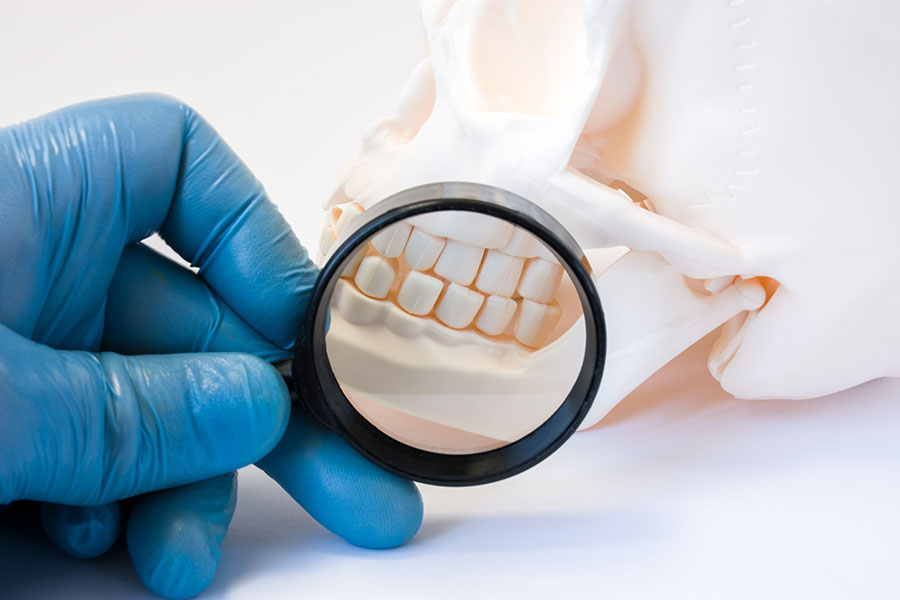Dr. Suzanne Caudry is one of the GTA's most celebrated periodontists. She has been at the forefront of her field for decades and commits countless hours every week to educating emerging clinicians in her field.
All that is well and good, but what does it mean to be a periodontist, let alone a celebrated one? What services and procedures comprise the field of periodontics? We are going to answer these questions in today's blog post.
If you have any questions over the course of this blog post, simply pick up the phone and call (416) 928-3444. We are always eager to speak with a potential new patient.
Periodontists Versus Dentists
It is worth highlighting the differences between the terms dentist and periodontist. Knowing what a dentist offers versus what a periodontist offers will give you lots of clarity on the subject.
Dentists care for their patients in a variety of ways. They fill in cavities, address tooth decay, and more. Make no mistake, dentists are able to diagnose and even treat a variety of oral health issues.
Periodontists are a more specialized version of a dentist. They are dentists who have attained at least three more years of education and practical training. They're qualified to perform a variety of surgical procedures, from gum grafts to the placement of dental implants.
At the end of the day, both dentists and periodontists see it as their job to anticipate future gum and tooth issues while also addressing existing problems. When a dentist is unable to perform the procedures needed to restore equilibrium to a patient's oral health, they will often refer them to a periodontist.
Ins and Outs of Periodontics
Periodontists, like Dr. Caudry, primarily focus on the prevention, diagnosis, and treatment of periodontal diseases.
Periodontal disease refers to the infections that impact the following:
- Teeth
- Gums
- Alveolar bone
- Periodontal ligaments
If left unchecked, periodontal disease can lead to a host of other health problems that extend beyond the teeth and gums. That is why the periodontists are so diligent in their work.
Periodontal Prevention
As we said, periodontists believe in preventing infections and other health troubles whenever possible. How do they go about this? Well, there are a number of practices and procedures at the modern periodontist's fingertips.
Prevention comes in many forms. Something as simple as a checkup can be considered a preventative act. That said, there are many things a periodontist might do to ward off unwanted infections.
At the facilities of Dr. Caudry, we believe that proper oral hygiene is the key to the prevention of periodontal disease. Some of the hygienic services that we offer include:
Deep Scaling
Think of deep scaling as a more in-depth approach to the conventional teeth cleaning procedure. For those who already live with gum disease, they might be very familiar with this procedure. During the deep scaling process, we remove plaque and tartar below the gum-line rather than just the exposed area of the tooth. This might be an uncomfortable process for some, but with our anesthetic and sedation options at your fingertips, you will feel as comfortable as can be.
Antibacterial Treatments
You might be familiar with the antibacterial treatments offered by your local dentist, but rest assured that periodontists like Dr. Caudry take a more targeted approach with their treatments. At our facilities, we administer the antibacterial solutions deep under the gum-line to kill the hard-to-reach and harmful bacteria hiding in plain sight.
Diagnosing Periodontal Disease
Being the professionals that we are, it is never difficult to identify periodontitis in a patient. Many periodontists or dental hygienists might use an instrument known as a dental probe to detect the disease. The probe measures the space (known as the sulcus) that exists between the teeth and gums. That said, there are countless other signs that periodontitis might have already taken note of, such as inflamed gums, bad breath, or signs of rotting teeth.
Periodontitis Treatment
There are many ways for a professional to treat and address periodontal disease. There are surgical methods as well as non-surgical methods. Knowing which methods are right for the patient living with periodontitis depends entirely on their current state of health, preferences, and so on.
Non-surgical Periodontitis Treatments
Non-surgical treatments include deep scaling, root planing, and regimens of antibiotics. The planing of the roots discourages the future buildup of bacteria and unwanted tartar. Methods such as these might not eliminate periodontitis altogether, but they can effectively keep the disease from worsening.
Surgical Treatments
In cases of advanced periodontitis, you may be recommended to one of the more celebrated surgical procedures.
During what is known as the flap surgery, Dr. Caudry may make small incisions in the gums so as to expose the roots of a tooth. We do this in the interest of more effective deep scaling. In cases where there has been significant bone loss due to infection, we may also contour the underlying bone before closing the gum flap with sutures.
Soft tissue grafts and bone grafts are two other commonly performed procedures. Both procedures aim to restore the gums or the jaw bone. Gum grafts reduce further gum recession, while bone grafts strengthen the bone that has been lost to periodontitis. Bone grafts allow for the growth of new, natural bone.
Learn More About Periodontists Today
As a periodontist, Dr. Caudry has demonstrated incomparable drive and skill throughout her career. She has improved the oral health and overall happiness of so many patients. As the years go by, Dr. Caudry and her dream team staff will only continue to embrace new technologies and develop new, life-changing practices.
The world of periodontics is a world that is always moving forward. Call (416) 928-3444 to see where we are at today.

